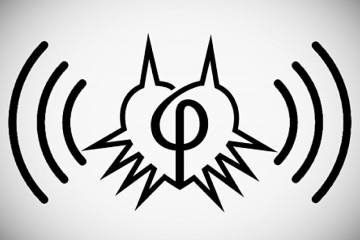The following is an episode of With a Terrible Fate’s weekly podcast discussing video-game storytelling from all angles. Find all episodes here.
In Episode 2 of With a Terrible Fate‘s new podcast, we explore the structure of origin stories in video games: where does the concept of the origin story come from, how can it help us to understand our favorite games differently, and how can the special interactive nature of video games tell alarmingly nuanced origin stories unavailable to other media?
Also on the agenda: studying the ways in which we talk about players and avatars in video games; a peek into the academic study of video-game storytelling; how video games can disrespect your time; what the PS3 and PS Vita stores tell us about the future of gaming libraries.
- 00:03:53 Main Story (spoilers for The Last of Us and The Last of Us: Left Behind)
- Side Quests
- 00:39:54 “Ordinary language” in player-avatar relations
- 00:56:14 Why Stefan quit Assassin’s Creed: Valhalla
- 01:07:58 The Ethics and Implications of Digital Stores Shutting Down
Continue Listening
- Podcast navigation: < Episode 1: Pressing Start | Episode 3: Kingdom Hearts >




2 Comments
Caymus · May 10, 2021 at 4:31 am
Regarding the “ordinary language” of player-avatar relations, I typically view actions taken during gameplay as my own and actions taken during cutscenes as the avatar’s. If I currently possess direct control over the avatar, then I bear responsibility for any actions undertaken during that possession, but when that possession is suspended, the avatar regains control, and thus assumes the responsibility for their actions. This understanding just seems intuitive to me, and if I had to guess, I would say most gamers view the player-avatar relationship similarly, whether they consciously acknowledge it or not. Definitely a very fascinating discussion!
80KiloMett · May 10, 2021 at 9:11 pm
On digital copies and game preservation:
I think soon there won’t be such a thing as a physical copy of a game anymore. At least AAA Video games have come to a point where they are so large (in terms of amount of data), that physical media just cannot contain them anymore. You’d either need several blu-ray discs filled with heavily compressed data or your pseudo-physical copy is just a key to download the missing data (I actually don’t know how the PS5 handles that, so please enlighten me). Also there’s the update problem. Let’s pick out an extreme example: Imagine having bought a disc version of Cyberpunk 2077 soon after release (not sure this even exists). This physical copy has never seen any patches and is technically hugely flawed on its own. So did you really buy a physical copy of the game? The physical copy is starting to make less and less sense. We especially see that on PC where physical copies are even rarer since the blu-ray never really made it to the PC.
That being said, I like physical copies. On my Nintendo switch I usually opt for the physical copy when possible. But the Switch is also an exception because it’s effectively a somewhere inbetween PS3/X360 and PS4/XONE technologically speaking, so the games don’t need such huge high res assets (and the Switch couldn’t handle them).
When buying a digital copy the thought of future loss is always on my mind. So when I buy a game on PC my first choice will always be GOG because of the lack of DRM (well for many of the games at least). Also I will usually download the standalone installers of important games and keep them for later use. I do this on Steam, too. Their installers aren’t quite standalone but at least the game data can be downloaded and installed through Steam again. But this also becomes increasingly difficult as games such as Red Dead Redemption 2 can be over 100GB in size.
On consoles I tend to install homebrew software as they reach the end of their life cycles and dump any important games for later use either on the original hardware or with emulators. Especially Wii-, Gamecube- and PS2 emulation have come a long way and can often provide a superior experience to original hardware. And there’s of course the problem of compatibility of old consoles with modern TVs as analog inputs become rarer.